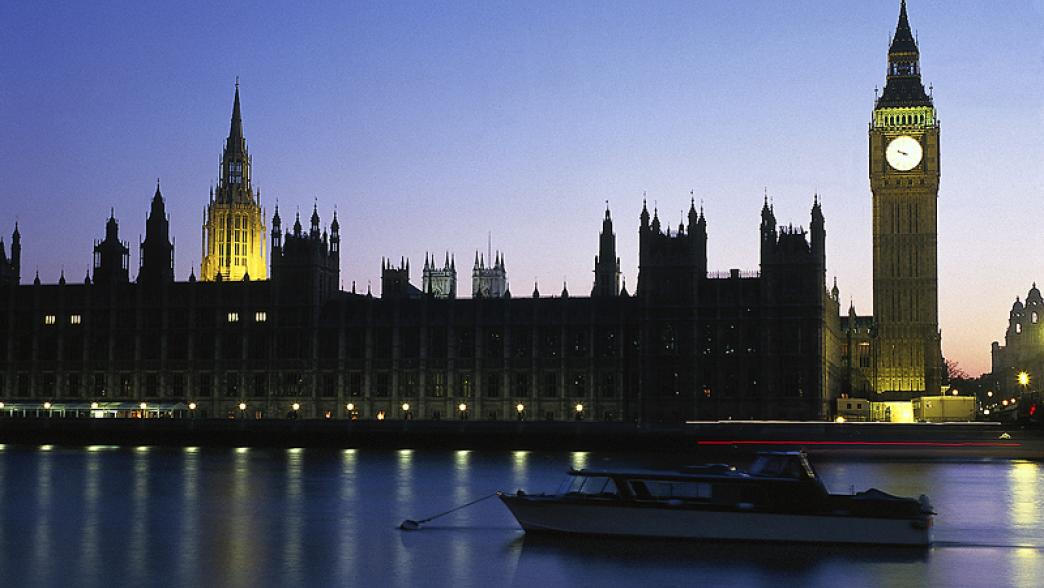
The Prime Minister confirmed there will be a parliamentary vote on the final Brexit deal. The Supreme Court may require Parliament to vote before Article 50 is triggered. But Dr Hannah White isn’t convinced that a vote will actually enable Parliament to influence what happens.
Sterling rose on 17 January. That could just have been a combination of downbeat pre-briefing by No.10 and higher than expected inflation figures – or it could have been the markets reacting to the Prime Minister’s ‘announcement’ that Parliament would have a say on the Brexit deal.
But a parliamentary vote may not be as significant as it seems
Gordon Brown’s 2010 Constitutional Reform and Governance Act (CRAG) sets out Parliament’s role in ratifying international treaties. It says that if the House of Commons objects to the ratification of a treaty within 21 days of the Government laying it, it cannot be passed. The Government can try to lay it again, triggering another 21-day period, but the Commons can object again. This process, known as ‘negative procedure’, can – in theory – go on indefinitely.
The House of Lords can also pass a resolution saying a treaty should not be ratified, but unless the Commons also objected, the Government can override the Lords.
But the Prime Minister went even further than the status quo under CRAG by making clear that both Houses will definitely have a vote on the final deal. It’s just not clear exactly how the parliamentary votes will take place.
The main options are:
- requiring a vote of each House before an Article 50 treaty can be ratified under CRAG – a change to so-called ‘affirmative procedure’
- giving each House the opportunity to support the proposed deal by the Government tabling motions.
As with Article 50, Parliament may have no option but to say yes
There has been no indication that the Government intends to introduce primary legislation to secure parliamentary approval for the deal. Until the final content of the deal is known – including whether it includes elements of the UK’s future relationship with the EU – it is not possible to be sure whether and to what extent primary legislation could be required.
A bill would open the deal to debate and amendment, and potentially delay the process of ratification. Without primary legislation it is unlikely that the parliamentary procedure used will provide any opportunity for amendments, so Parliament’s choice will be between accepting and rejecting the deal. Even if amendments were possible, it is unclear whether it would be feasible for the UK to reopen a deal agreed with the 27 member states, with the Article 50 clock still ticking.
If Parliament supports the deal, then Brexit will proceed, subject to the agreement of other parties (at a minimum the EU Council and EU Parliament).
If Parliament rejects the deal, the Brexit Secretary, David Davis, has made clear the Government’s view that the UK will still be leaving the EU. This means the Government is sticking to its line that it will not be possible to revoke Article 50 once it has been triggered.
There are three main possibilities following a rejection:
- the Government asks the 27 other member states to agree to extend the negotiating period to try to find a deal that Parliament will accept
- the Prime Minister seeks a general election and puts the question again to the new Parliament – this option is trickier to achieve with the Fixed Term Parliaments Act in place
- the UK leaves the EU with no withdrawal agreement in place.
Parliament must avoid being side-lined
The Prime Minister gave her big speech in Lancaster House – not the Chamber, which had to make do with the David Davis explainer.
And once in the Commons, despite being pressed by MPs from both sides, Davis made clear there will be no white paper, let alone an impact assessment of the Government’s preferred policy.
In this situation, the real way Parliament can stay involved is through its committees, examining government objectives and preparedness. It is promising that the Commons Exiting the EU Committee produced a substantive first report with agreed recommendations, including getting Brexiteers to accept that negotiations will be long and complex.
Other select committees in both Houses are also getting in on the scrutiny act – at last count 37 inquiries had been launched on Brexit-related themes since the referendum. The risk of overlap and a lack of co-ordination we flagged in the autumn is clearly materialising. The Lords Liaison Committee has tried to tackle this by setting up an informal group to co-ordinate its committees’ work, but sadly no equivalent initiative has been forthcoming in the Commons.
Parliament needs to pay attention to these issues if it wants to help shape the final deal it will be invited to rubber stamp in two years’ time.
We will hear more about the plans of the Exiting the EU Committee when its Chair, the Rt Hon Hilary Benn, speaks at the Institute on 6 February.
- Supporting document
- IfG_scrutinising_Brexit_briefing_v5B.pdf (PDF, 435.84 KB)